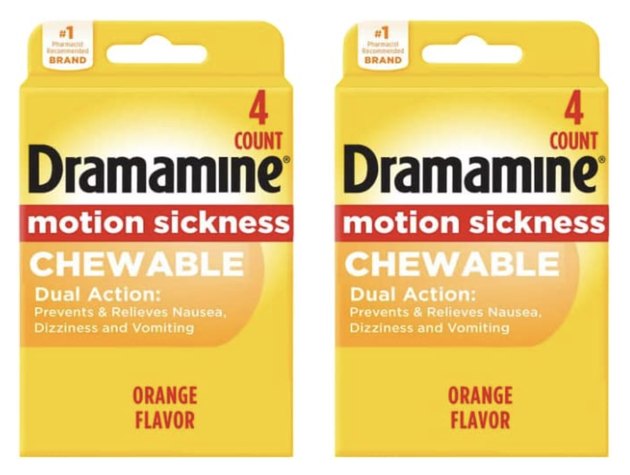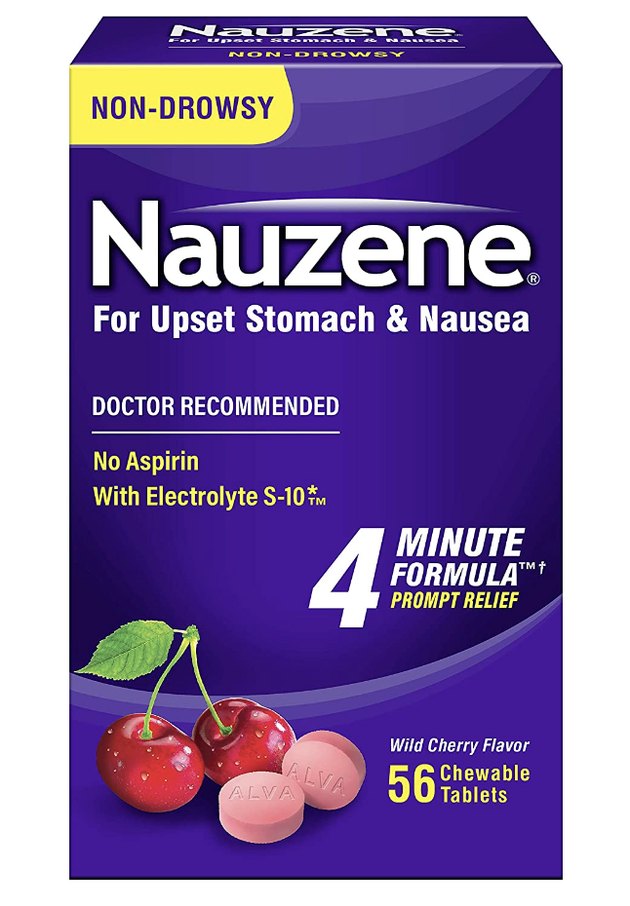
If you've been diagnosed with rheumatoid arthritis (RA), one treatment option is DMARDs — or disease-modifying anti-rheumatic drugs. One of the most commonly prescribed DMARDs is a drug called methotrexate.
Methotrexate was first used in the 1940s as a chemotherapy drug to help treat people with cancer, per the National Cancer Institute. But scientists have found it can also slow down joint damage and the progression of RA while decreasing pain and inflammation, per the Cleveland Clinic.
Video of the Day
Video of the Day
"One of the benefits of DMARDs for RA is a reduction in the signs and symptoms of the disease, such as joint pain, swelling and stiffness, as well as prevention of the progression of rheumatoid disease, such as joint deformities and disability," says Adam Kreitenberg, MD, a rheumatologist based in California.
Methotrexate, in particular, is an effective RA drug. Researchers believe it causes cells to release adenosine, a molecule that blocks inflammatory chemicals in the body, per the Arthritis Foundation.
While DMARDs can be incredibly helpful, there are some common side effects and risks to know before starting this type of medication. Read on for more.
Tip
Doctors often begin patients with RA on an oral dose of 7.5 milligrams of methotrexate per week. Then they determine whether you need less or more of the medicine, per the Mayo Clinic.
1. It's Safe
Simply put, DMARDs (especially methotrexate) are strong drugs. But that doesn't mean they aren't safe. In fact, methotrexate in particular is one of the safest drugs you can take for RA, according to the Arthritis Foundation.
There's a common misconception that because methotrexate is sometimes used to treat cancer, it's a highly toxic drug. But this isn't true. When prescribed for cancer, the dose is usually hundreds of times higher than it is for RA.
But the benefits are big: "By reducing inflammation, RA patients can improve their mobility, quality of life and be able to perform daily activities and exercise. It also reduces the need for steroids or pain-relievers, which can have additional side effects," says Teja Kapoor, MD, a rheumatologist and assistant professor of medicine at Columbia University Medical Center.
If dosed correctly and used under the supervision of your doctor, methotrexate is generally safe and effective.
2. You Might Have Nausea
One of the most common side effects of this class of drugs, specifically methotrexate, is persistent nausea. This can cause a loss of appetite, making it difficult to maintain a balanced diet, per the Arthritis Foundation.
But there are some things you can try to tamp down the queasy feeling: "It is very important to talk to your health care provider if you are having any side effects. Sometimes adjusting the dose can help to decrease or eliminate these symptoms," Dr. Kapoor says.
In fact, a July 2022 study in the Journal of Community Hospital Internal Medicine Perspectives showed that splitting the weekly dose in half and taking it on alternate days rather than all at once improved appetite and lessened nausea and stomach upset while still improving RA symptoms.
You'll typically experience nausea within one to two days after your weekly dose, per the Johns Hopkins Arthritis Center. If this happens, even after cutting your dose, another option is to switch to an injectable form of the medication. The injection completely bypasses the stomach, which can help you avoid the nausea completely.
An April 2021 study in Patient Preference and Adherence showed that switching to the injectable form of methotrexate improved gastrointestinal symptoms and overall quality of life for the majority of people.
Keep in mind, though, that if you have sensitive skin, you may notice irritation, itching or a rash at the injection site when you get methotrexate via injection. If this is the case, try switching up the injection location, and talk to your doctor about natural remedies for this irritation.
And if your nausea persists, ask your doctor whether anti-nausea medication like Dramamine or Nauzene is right for you.
3. You'll Need to Be Diligent About Sun Protection
Methotrexate can make your skin more sensitive to sunlight or ultraviolet light, per the National Library of Medicine (NLM).
This means your risk of sunburn is higher, and you may react to sun exposure by breaking out in sunburn blisters or a rash. You may even see a rash form on areas of your skin that have been previously sunburned, per the Arthritis Foundation.
This reaction may be more pronounced for people with psoriasis, as the combination of methotrexate and sunlight can worsen skin sores.
Some ways to protect your skin include the following, per the Arthritis Foundation:
- Cover your skin with sun-protective clothing and wear a wide-brimmed hat when possible
- Wear a mineral-based sunscreen made with titanium dioxide and/or zinc oxide that has SPF 30 or higher, and reapply it every two hours (or sooner if you're sweating or in the water)
- Avoid the sun at its peak times, usually between 10 a.m. to 2 p.m.
- Avoid tanning beds and sunlamps
You may also want to use a fragrance-free body wash and gentle moisturizer to help hydrate and protect sensitive skin affected by methotrexate.
4. Your Risk of Infection Is Higher
An overactive immune system can often be the cause of an RA flare, which is why DMARDs like methotrexate work to help suppress the immune system, per the Centers for Disease Control and Prevention (CDC).
But a weakened immune system can increase your chances of infection and catching other colds and viruses.
"It's important to understand that methotrexate can decrease your ability to fight off infections and can increase your risk of contracting shingles — a viral infection that causes a rash," Dr. Kapoor says.
That's why the CDC recommends adults ages 50 and older who have RA get the shingles vaccine Shingrix.
Other common infections you're at higher risk for while taking methotrexate include upper-respiratory tract infections, sinus infections, bronchitis and urinary tract infections, per the Arthritis Foundation.
Regular hand-washing is one of the best ways to protect yourself from germs that cause infections, per the CDC. It's especially smart to suds up after you eat or prepare food, use the toilet (or help someone else do so), change diapers, touch garbage, feed or touch an animal or animal waste, treat a wound or care for someone else who's sick.
Other healthy habits that can help enhance your immunity include the following, according to the CDC:
- Eat a healthy diet full of a variety of fruits and vegetables as well as lean proteins (think: chicken, seafood, lean cuts of red meat), whole grains (like brown rice and oats) and fat-free or low-fat dairy products. If you have dietary restrictions, talk to your doctor about taking a nutritional supplement.
- Exercise regularly
- Maintain a healthy weight
- Get enough sleep (that's seven to nine hours per night for adults)
- Don't smoke
- Avoid drinking too much alcohol
Finally, tell your doctor if you're showing signs of infection such as fever, cold-like symptoms or rash, so they can properly assess and treat you.
5. You'll Need to Watch How Much Alcohol You Drink
Taking methotrexate for long periods of time may result in liver damage, especially if you have a history of liver disease or if you drink large amounts of alcohol, per the Arthritis Foundation. In fact, if you have a history of heavy alcohol use, your doctor may not prescribe DMARDs at all.
According to a September 2017 review in World Journal of Hepatology, scientists are still learning about the effects of methotrexate on the liver. They do suspect that the drug can damage the liver by depleting its stores of the essential mineral folate.
Taking the smallest dose of methotrexate possible and taking folic acid (the supplement form of folate) at the same time can help reduce this risk, per the review.
Additionally, you should try to limit or avoid alcohol while taking these medications, per the NLM.
6. It Can Reduce the Effectiveness of Vaccines
Because methotrexate suppresses the immune system, it may reduce the effectiveness of vaccines.
Vaccines normally produce a temporary immune response in your body, which is what makes them helpful in warding off disease long-term, per the World Health Organization. Methotrexate dampens that immune response, meaning the vaccine may not protect you from what it's supposed to.
Some research has shown, however, that pausing the medication to get vaccinated could be helpful, Dr. Kapoor says.
In fact, a June 2022 study in The Lancet Respiratory Medicine found that people who stopped methotrexate two weeks before COVID-19 vaccination had better vaccine immunity against the disease. The study authors also followed participants who stopped taking the medication a month before getting vaccinated and found it wasn't any more effective, so they recommended the two-week pause.
If you need to get a vaccine, talk to your doctor about whether pausing your medication is the right choice for you.
7. You Might Get Mouth Sores
Mouth sores and swollen gums are a common side effect of DMARDs, especially methotrexate. This is because methotrexate reduces your body's levels of folate, which is necessary for normal cell function.
Taking a folic acid supplement can resolve this issue in most people, per the Arthritis Foundation. Ask your doctor or pharmacist to recommend a specific supplement.
Natural remedies for sores like a daily salt-water rinse may also help relieve symptoms. You could also try a mouthwash with lidocaine for pain relief (ask your doctor or pharmacist to recommend a specific product).
8. You Might Get Headaches
Headaches, especially migraines, are common in people with RA, most likely due to the inflammation that occurs with both conditions, per a November 2021 study in the Egyptian Journal of Neurology, Psychiatry and Neurosurgery.
In some people, methotrexate may also cause headaches as a side effect, so your pain could be due to a combination of RA and RA treatment, per the Mayo Clinic.
Unfortunately, many common over-the-counter headache medicines like Tylenol, Motrin or naproxen can be dangerous to take while also taking methotrexate. They can slow the rate at which the medication is cleared from your body, possibly causing the medication to build up to unhealthy levels, per the Arthritis Foundation.
So if you experience headaches, it's best to ask your doctor for an over-the-counter or prescription recommendation.
9. You Cannot Take It if You're Pregnant
If you're pregnant or plan to become pregnant, you cannot take methotrexate, as it can cause harm to you and your baby.
Before prescribing methotrexate, your doctor will give you a pregnancy test. Additionally, you should continue to use birth control for three months after stopping the medication to allow it to completely clear from your body, per the National Library of Medicine (NLM).
Methotrexate is also known to pass into breastmilk in small amounts, per the National Library of Medicine. If your doctor wants you to keep using methotrexate while breastfeeding, they may also test your baby's blood to see how much of the medication they are ingesting.
If you have an infant, speak with your doctor before breastfeeding because you may need an altered treatment plan.
10. It Can Interact With Other Medications
DMARDs are known to interact with other medications, according to an April 2021 review in the European Review for Medical and Pharmacological Sciences. Interactions can result in unwanted side effects, such as vomiting, dizziness or fatigue.
Medications that may interact negatively with methotrexate include:
- Certain antibiotics
- Analgesics (painkillers)
- Anesthetics (often used in dentistry)
- Antifungals
- Corticosteroids (i.e. steroids)
There are also medications known to increase the effectiveness of DMARDs (such as proton pump inhibitors for heartburn and the antibiotic amoxicillin), which can cause side effects, too.
"Be aware of the potential benefits and side effects associated with [methotrexate] and possible interactions with any other prescribed or over-the-counter medication or supplement," Dr. Kreitenberg says.
Always tell your doctor what other medications or supplements you are taking before starting DMARDs. And, once you've started methotrexate, get the OK from your doctor before taking anything new.
Warning
While rare, visit your nearest emergency room if you have severe side effects from methotrexate like blurred vision/sudden loss of vision, fever, seizures, confusion, difficulty moving, loss of consciousness, impaired speech or swelling of the face, arms or legs, per the NLM.
The Bottom Line
DMARDs, especially methotrexate, are the standard of care for RA and are considered safe medications for many people. In fact, more than 90 percent of people with RA use methotrexate at some point in their lives, per the Arthritis Foundation.
While there are a number of possible side effects and complications associated with these medications, they may still be worth trying if RA is interfering with your daily life. You could begin to feel relief as soon as two to three weeks after starting it, per the Johns Hopkins Arthritis Center.
If you're unsure about whether DMARDs are right for you, talk with your doctor. They can help you determine a plan of action to prevent and reduce side effects.
- Cleveland Clinic: "Rheumatoid Arthritis"
- The Lancet: "Intervention with methotrexate in patients with arthralgia at risk of rheumatoid arthritis to reduce the development of persistent arthritis and its disease burden: a randomized, double-blind, placebo-controlled proof of concept trial"
- Transactions of the American Clinical and Climatological Association: "Methotrexate in Rheumatoid Arthritis: A Quarter Century of Development"
- Arthritis Foundation: "Understanding Methotrexate"
- Joint Bone Spine: "Methotrexate Mechanism of Treatment in Rheumatoid Arthritis"
- Cleveland Clinic: "Disease-Modifying Antirheumatic Drugs (DMARDS)"
- The Arthritis Foundation: "DMARDs"
- The Egyptian Journal of Neurology, Psychiatry and Neurosurgery: "Migraine in patients with rheumatoid arthritis and its relation to disease activity"
- Mayo Clinic: "Folate (folic acid)"
- The International Journal of Molecular Sciences: "Overview of Dual-Acting Drug Methotrexate in Different Neurological Diseases, Autoimmune Pathologies and Cancers"
- The Lancet Respiratory Medicine: "Effect of a 2-week interruption in methotrexate treatment versus continued treatment on COVID-19 booster vaccine immunity in adults with inflammatory conditions (VROOM study): a randomised, open label, superiority trial"
- The European Review for Medical and Pharmacological Sciences: "Disease-Modifying Antirheumatic Drugs (DMARDs) and drug interactions in dentistry"
- National Library of Medicine: "Disease Modifying Anti-Rheumatic Drugs (DMARD)"
- National Library of Medicine: "Methotrexate"
- NLM: "Methotrexate Injections"
- Mayo Clinic: "Methotrexate (Oral Route)"
- Johns Hopkins Arthritis Center: "Rheumatoid Arthritis Treatment"
- National Cancer Institute: "Treatment of Solid Tumor Cancers with the Chemotherapy Drug Methotrexate"
- Johns Hopkins Arthritis Center: "Methotrexate and Nausea"
- Arthritis Foundation: "Common Pain Relievers Carry Risks"
- Patient Preference and Adherence: "Benefits of Switch from Oral to Subcutaneous Route on Adherence to Methotrexate in Patients with Rheumatoid Arthritis in Real Life Setting"
- Journal of Community Hospital Internal Medicine Perspectives: "Split Dosage Weekly Regimen of Oral Methotrexate is Associated With Improved Side Effect Profile in Rheumatoid Arthritis Patients: A Quasi-Experimental Study"
- Centers for Disease Control and Prevention: "Rheumatoid Arthritis"
- World Health Organization: "How Do Vaccines Work?"
- Centers for Disease Control and Prevention: "When and How to Wash Your Hands"
- Centers for Disease Control and Prevention: "Six Tips to Enhance Immunity"
- Centers for Disease Control and Prevention: "Shingles Vaccine Fact Sheet for Healthcare Providers"
Is this an emergency? If you are experiencing serious medical symptoms, please see the National Library of Medicine’s list of signs you need emergency medical attention or call 911.




